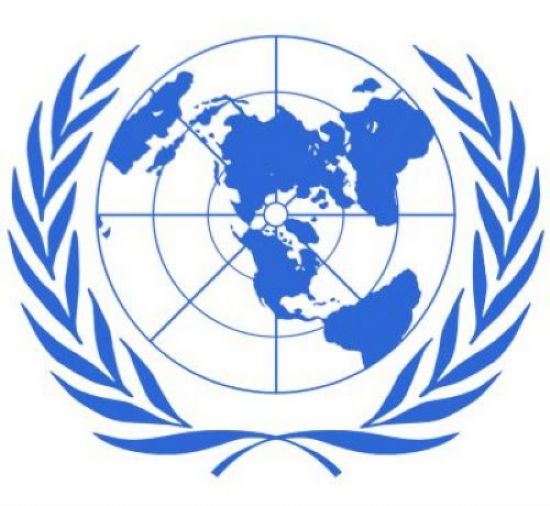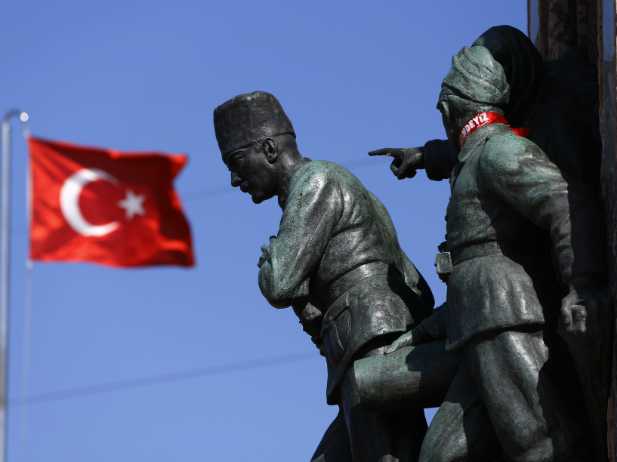If Washington were to pursue a military solution in its efforts to halt the Iranian nuclear program, Turkey – the only NATO country bordering Iran – must be a part of its planning. Likewise, if the United States and its European allies were to implement tighter economic sanctions against Iran, Ankara would have to play a key role because much of Iran’s trade with Europe goes through Turkey.
On the surface, Turkey seems to be on board with the West regarding Iran. But the Turkish position on Iran today looks much like the Turkish position regarding the buildup to the Iraq war in 2003. The specific factors that led to Ankara’s decision to oppose the war are re-emerging, building opposition to American plans to deal with Iran’s nuclear program, either through sanctions or military measures.
In 2003, the Turkish public had little awareness about the approaching Iraq war. At that time, the United States was using Turkey’s Incirlik air base to bomb Saddam Hussein’s air defenses. At the same time, Ankara was paralyzed by its internal struggle to preserve secularism within the government. If you read Turkish papers published back then, you would not guess that the United States was about to occupy one of Turkey’s neighbors and forever change their neighborhood.
Five years later – déjà vu. Turkey is once again stricken with political paralysis over the battle between secularists and the governing Justice and Development Party, or AKP. As a result, there is almost no coverage in the Turkish media on foreign policy issues, including Iran’s nuclear ambitions. Domestic tensions make it impossible for that issue to penetrate the debate. Perhaps Turks won’t even notice until Iran actually detonates a bomb.
Another similarity between today and the events of 2003 is that the AKP government is playing both sides to get away with doing nothing. As it negotiated with U.S. diplomats in 2003 about a joint front against Saddam, the AKP voiced antiwar rhetoric at home. Moreover, days before the war began, the AKP’s trade minister went to Baghdad to sign a multibillion-dollar trade deal with Saddam. In the end, the AKP-dominated Turkish Parliament voted to keep Turkey out of the war.
Now, once again, the AKP is playing both sides to shirk responsibility. While opposing U.S. military action, the party continues to spout its official line: “Turkey wants a nuclear-free Middle East.” Albeit a good start, this policy implies that Israel’s nukes are as much a problem as Iran’s would be – a stance that absolves Ankara from any real political obligations toward Europe and the United States on Iran. Moreover, at a time when the West is imposing sanctions, the AKP has signed a memorandum of understanding to invest $3.5 billion in Iran’s South Pars gas field – a move eerily similar to 2003.
Another similarity is America’s failure to communicate with the Turks. In 2003, Turkish officials expected, in vain, that Secretary of State Colin Powell would come to Ankara to promise that the war against Saddam would not break up Iraq and create an independent Kurdish state.
Today, seasoned diplomats in the Turkish Ministry of Foreign Affairs cannot tell from one day to the next how America is planning on dealing with Iran. And like in 2003, Ankara is waiting with crossed fingers for a high-level American statesman to explain Washington’s plans.
There is, however, one difference between 2003 and 2008: the role of the Turkish military. In the run-up to the Iraq war, bickering between the Turkish government and the military complicated matters for the United States. Neither the AKP nor the military wanted to be responsible for making the decision for their country to go to war. This thinking proved to be a fatal mistake for the military, rendering it irrelevant in Washington and powerless in Turkey.
After dropping out of the foreign policy debate in 2003, the military lost popularity, as was seen in the July, 2007 elections. Today it is in disarray.
This leaves the AKP in charge of major decisions regarding Iran. The AKP opposes both a military solution to Iran’s nuclear ambitions, as well as non-military measures like strong economic sanctions. As a result of the AKP’s rapprochement with Tehran since 2003, the official line in Ankara is that “Turkey’s economic interests in Iran are too important to sacrifice.”
The latest American overture to Ankara, supporting Turkish efforts against the Kurdistan Workers Party, has not sufficed to change the government’s attitude. While Washington has allowed Turkey to target PKK terrorist camps in northern Iraq, Tehran, as a favor to Turkey, has upped the ante with Washington by actually bombing such camps.
If the United States was betting on Turkish cooperation against Iran, it might as well plan to navigate around the looming iceberg. It might already be too little too late for Washington to count on Turkey on Iran.
Soner Cagaptay, a senior fellow at the Washington Institute for Near East Policy, is the author of “Islam, Secularism and Nationalism in Modern Turkey: Who is a Turk?”






